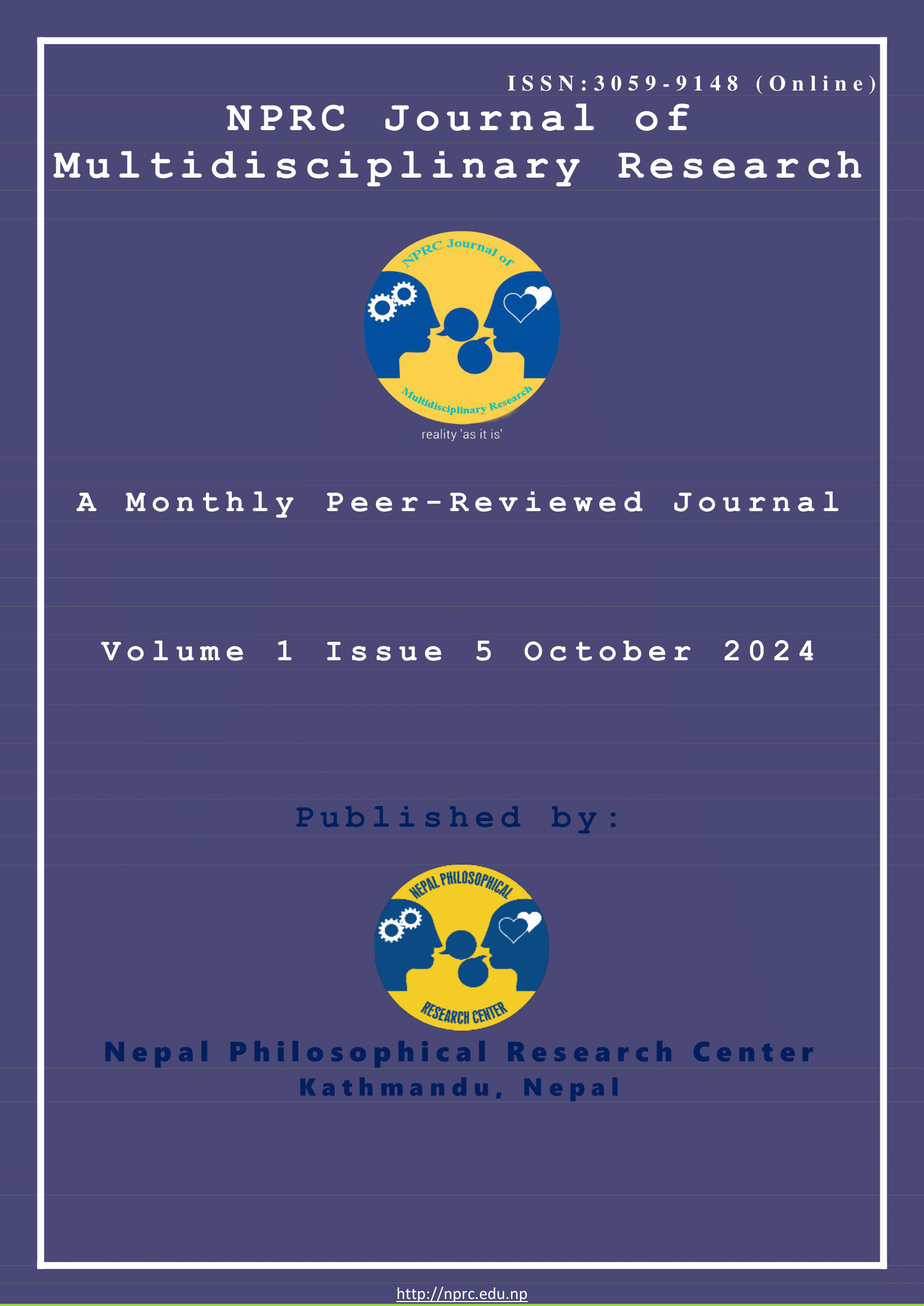Research Proposal Development in ELT: Tools for Planning, Structuring and Writings
DOI:
https://doi.org/10.3126/nprcjmr.v1i5.71315Keywords:
Research proposal development, English language teaching (ELT), constructivist learning theory, sociocultural theory, methodological rigorAbstract
The primary objective of this study is to explore the tools and processes involved in developing a research proposal for English Language Teaching (ELT), focusing on effective planning, structuring, and writing practices. A theoretical framework underpinned by constructivist learning theory and sociocultural theory guides the design of the study. The research employs a qualitative approach, synthesizing existing literature and expert guidelines to develop a comprehensive framework for research proposal development. Key stages such as selecting a topic, conducting a literature review, formulating research questions, and outlining methodological strategies are critically analyzed. The study suggests that clear research objectives, grounded in theoretical principles, significantly enhance the coherence and impact of research proposals. Furthermore, the alignment of personal interests with current trends in ELT increases the likelihood of sustained researcher engagement. In addition, the paper presents that a systematic approach to proposal development, incorporating clear objectives and methodological rigor, improves the overall quality and relevance of ELT research. The paper suggest that the incorporation of mentorship and peer feedback in the proposal development process and the necessity for researchers to remain flexible in their methodological choices, adapting them to the research context. This study contributes to the field by providing a structured guideline that can be utilized by novice researchers in ELT.
Downloads
Downloads
Published
How to Cite
Issue
Section
License
Copyright (c) 2024 The Author(s)

This work is licensed under a Creative Commons Attribution-NonCommercial 4.0 International License.
This license enables reusers to distribute, remix, adapt, and build upon the material in any medium or format for noncommercial purposes only, and only so long as attribution is given to the creator.





